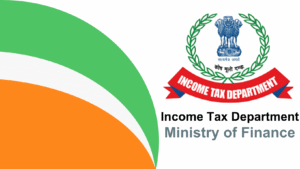‘Trust First, Scrutinise Later’ is CBDT’s new data philosophy

New Delhi, July 24, 2025The Income Tax (I-T) department has reaffirmed its commitment to strict taxpayer data confidentiality. It now follows the philosophy of “Trust First, Scrutinise Later.” CBDT Chairman Ravi Agrawal said intrusive action will be a last resort. It will apply only when there is credible evidence of large-scale tax evasion.
With rising concerns over digital data security, Agrawal said the department has strong internal controls. These controls help ensure both confidentiality and integrity. The upcoming New IT Bill will reflect a digital-era approach, updating powers related to digital evidence and survey operations. Agrawal emphasized that the department uses sensitive financial data strictly for analysis and only when the IT Act, 1961, allows it.
Agrawal added that “stringent internal controls and a strong commitment to taxpayer data confidentiality” are foundational principles. He explained that access is strictly on a “need-to-know” basis. “We believe in building trust, not fear,” he said. He added that data privacy and minimal intrusion are key to the department’s mission.
The CBDT chairman also stated that the new IT law will simplify tax compliance for ordinary citizens. The updated provisions are expected to reduce dependence on tax professionals for interpretation. He said using formulae, tables, and standard provisions will make the system easier for both taxpayers and advisors.
Responding to concerns about transparency, Agrawal highlighted the department’s preference for a “nudge” approach in minor discrepancies. Only serious violations like tax concealment, undisclosed income, or involvement in illicit activities would warrant deeper investigation. This approach, he said, promotes voluntary compliance and reduces taxpayer anxiety.
He said refund processing time fell from 93 days in FY14 to just 17 days in FY25. He credited digitization and faceless processes for the improvement. Taxpayers no longer need to visit tax offices or meet officers for basic issues. This shift ensures fairness and transparency in processing.
Technology, according to the CBDT, has played a major role in improving refund accuracy and simplifying the process. Automation has enabled efficient case assessments while protecting taxpayer rights.
The department’s message centers on reform, trust, and minimal intervention. As India adopts a digital tax system, the New IT Bill is designed to support both compliance and user-friendliness.
Source
